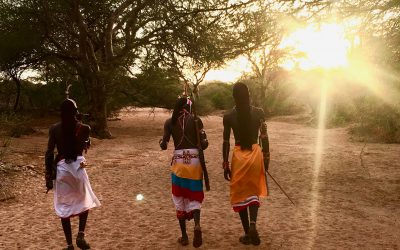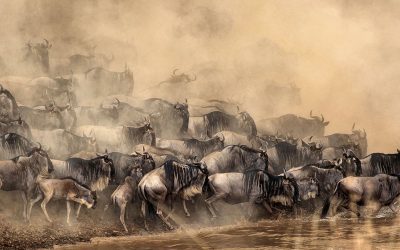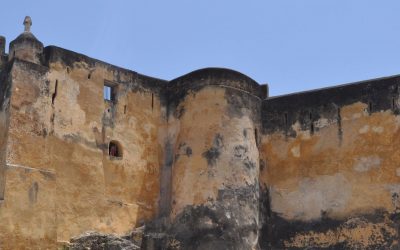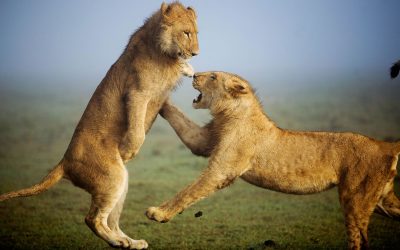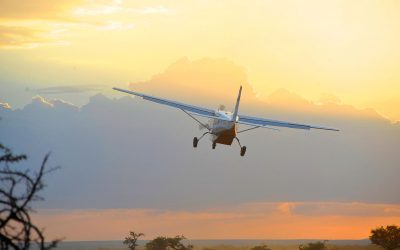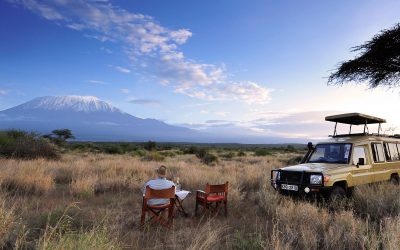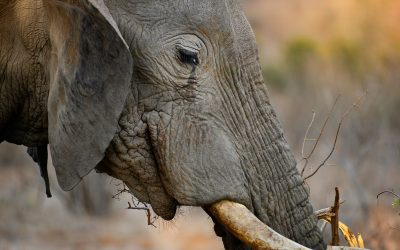Kenya
Situated at the Indian Ocean, Kenya has become a major tourism destination in East Africa. Kenya is optimal for tourists seeking the safari adventure and the relaxation at the beach. From mountains and forests, to lakes, vast savannahs and white sandy beaches, the country has a vast offer of different landscapes.
The People
More than 50 different tribes make up the 32 million people living in Kenya. 90% of the overall population are of African origins, the remaining 10% are minority groups from Asia, Europe and the Arabian countries. The national language is Swahili; the two official languages are Swahili and English. The majority of the population are Christians, about one fifth is Muslim and one tenth is composed of Hindus, Sikhs, Jains and Buddhists.
Climate
Tropical climate is normal for the coast, and travellers can expect warm weather year round. During the rainy season from May – June longer rainfall can be expected at night and the morning. Temperatures vary little with a slight decrease in the morning. It is unusual to have continuous rain through out the day.
Inland the temperatures can go down quite a lot during the rainy season, and it is advised to bring a fleece as temperatures can reach below 10° C at night and early morning.
In the highlands, rainy seasons last from April to June and from October to November. The nights are relatively cool between July to August. With temperatures ranging at about 10° C is the coldest time in this region. January and February offer the warmest temperatures with an average of 26° C.
The Coast
The coast is a famous destination for tourists who like to relax a few days on the beach and experience the Swahili culture. The most popular places along the Kenyan coastline are Mombasa, Diani with its long white beaches, Malindi and Lamu. There are many excursions to different tourist attractions, such as the old town of Mombasa, Fort Jesus, city tours and excursions to the sea. During any holiday with Scenic Air Safaris we are happy to advise you with the numerous possibilities.
Game Parks
Kenya has a total of 50 national parks and reserves. Each one is varied with its own wonderful scenery, wildlife and highlights. The country´s most famous reserve is the Masai Mara, situated in the West bordering the Serengeti National Park in Tanzania (http://www.maasaimara.com). From June to October it hosts the “Great Migration”, during which hundreds of thousands of wildebeest come from the Serengeti in the search for food.
Other major parks include Amboseli, Meru, Tsavo East, Tsavo West, Mount Kenya, Samburu and Shaba.
What to bring to your Safari
Please note that during your safari you are allowed a maximum of 15kg in soft bags per person due to the limited space on the aircraft. Should you bring more luggage you can leave some at the hotel or let our team take care of it. Below you will find some guidelines as to what you should put in your suitcase.
Clothes: Shirts/T-shirts, shorts/long trousers, casual evening clothes (most restaurants require men to wear long trousers for dinner), light sweater (it can get cold during the evening/ night in some locations), pair of covered shoes for walking, sandals or flip flops for wearing around camp or in your rooms, swimming shorts / costumes (some camps have a pool). During the rainy season packing a water proof jacket is recommended. Most camps have laundry facilities and can clean your clothes overnight.
General items: Sunglasses, sun screen, insect repellent, anti-histamine cream, binoculars, camera kit, adapter that fits British power plugs.
Most camps and hotels offer wireless internet access and you might want to bring your laptop or tablet to stay in touch with the family and friends back home.
Important Travel Information
CURRENCY EXCHANGE:
The unit of currency here is Kenya Shillings. Your hotel has a cashier for changing your traveller’s cheques and cash, but the rate offered at the hotel is often lower than at the local banks. However, remember the distance to the bank as well as the waiting time which can mount up. Automatic teller machines (ATM) are also available in Kenya. Please ask the hotel receptionist or your tour leader where the closest one to you is located. Whenever you change your money you are going to need your passport. Please ensure you obtain a receipt for all transactions. Please note whilst on safari you may be far from an ATM but most camps accept credit cards.
DIFFICULTIES:
Should you encounter any problems at all whilst here on holiday, please advise your guide immediately, so we can try to assist.
PHOTOGRAPHY:
If you are taking photographs of the local people, always ask their permission before hand. Your driver guide will assist you in this and will possibly help you agree a modelling fee. Do not take photographs of the President, police officers, Military personnel or official government buildings (i.e. military installations, border posts or road blocks). It is advisable to carry your cameras in dust-proof bags on safari, especially in the dry season.
HEALTH:
Anti-malaria medication is strongly recommended and professional medical advice should be sought on this. Tap water should not be consumed. Bottled mineral water is widely available, as is filtered water in hotels and lodges. Anti-septic cream should be applied to all insect bites. Yellow fever vaccination is recommended but not mandatory.
TIPPING:
Tipping is entirely at the discretion of the visitor, depending upon your being satisfied with the service. As a guideline the following are the standard tipping rates:
Porters: Between US$1 to US$ 2 per service
Bar & Restaurant staff: Approx. 10% of the value of the bill
Driver guides: Between US$ 5 to US$ 10 per person per day depending on satisfaction
SICKNESS:
We recommend you travel with Medical Insurance and in case you visit one of our hospitals ensure you keep all receipts for your insurance claim upon your return home.
FAITH:
Kenya is multicultural and people of all faiths live happily together. Should you wish to visit a church or mosque during your stay please ask your representative for information on what is available in your area.
SECURITY:
Common sense should prevail and precautions should be taken as in any major city. Use hotel and lodge safety deposit boxes wherever possible. If they are unavailable, documents, cash, traveller’s cheques and other valuables should be carried on your person at all times. Never leave valuables, especially money and documents unattended in the hotel room or in the safari vehicle. If walking in towns or cities only carry small amounts of cash, do not wear obvious jewellery and keep a close eye on your handbag or wallet. Rather than walk, we recommend that you take a taxi in cities at night. Ask the hotel or restaurant doorman to arrange your cab.
LUGGAGE:
The total baggage allowance for each passenger is 15kgs in soft bags. You may also have a small carrier-bag for personal items.
PASSPORT:
Your passport must be valid for at least 6 months upon entering Kenya
VISA:
Ensure you have money in cash to pay for your visa fees which is 40 Euro or 50 USD or 30 GBP.
Kenya Highlights
Located on the Equator in East Africa, Kenya offers a huge diversity of landscapes with game rich savannahs, National Parks and Game Reserves, timeless cultures and tribes unchanged by the 21st century, beautiful sandy beaches and coral reefs, deserts, rain forests and snow-capped mountains. Visitors have endless opportunities for adventure and discovery on safari and rest and relaxation on the tropical coast.
The Masai People
As its name would suggest the Masai Mara is the home of the fabled Masai people. Often strikingly tall and slender, swathed in brilliant red cloth ‘Shukas’, strung with beads
Migration
The biggest annual event in Kenya is the migration, where huge herds of wildebeest head from Tanzania’s Serengeti National park into Kenya’s Masai Mara in search of greener pastures. Entering Kenya in late July/August each year, more than 2 million of...
Mombasa
Mombasa is an island connected to the mainland by bridges and ferries. The town overlooks a wide harbour, where commercial shipping mingles
Lake Nakuru National Park
Situated between Lakes Naivasha and Baringo, beneath the high cliffs of the Eastern Rift, lies Lake Nakuru. This is a shallow soda lake surrounded by yellow-barked acacia
Samburu National Reserve
Rugged and remote, Samburu National Reserve lies within the fascinating semi-desert area of Kenya’s Northern Frontier District.
Tsavo East & West National Parks
Both Tsavo East and West are ideal for those who enjoy solitude and a chance to explore wilderness without encountering other people.
Amboseli National Park
The Park lies below the most famous symbol of Africa – Mount Kilimanjaro 5,895 metres the highest mountain in Africa and the tallest freestanding mountain in the world.
Masai Mara Game Reserve
When it comes to game viewing, there is nowhere in Africa richer in wildlife or more eventful in encounters than the Mara. A pristine wilderness of haunting beauty
Nairobi
Nairobi, originally little more than a watering hole for Masai tribes, became a substantial town by 1900 due to the building of the Mombasa to Uganda railway.


